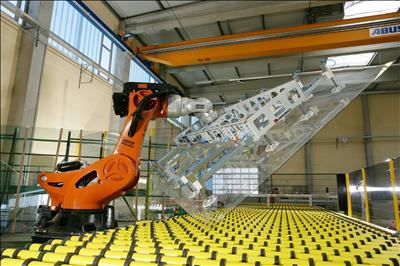 The global contract logistics market grew 5.0% last year, its fastest annual pace since 2010, according to a new report from Transport Intelligence (Ti).
The global contract logistics market grew 5.0% last year, its fastest annual pace since 2010, according to a new report from Transport Intelligence (Ti).
While it has been a strong year overall in contract logistics, for logistics service providers (LSPs) “there are undercurrents of profound change which require action now to make sure the trends become opportunities, not threats,” said the report.
It predicts that in the coming years, some manufacturing sectors will grow robustly while others will decline; meanwhile, retail contract logistics will boom, fueled by e-commerce.
David Buckby, Ti’s economist, said, “Over the next five years, some manufacturing contract logistics sectors, such as healthcare & life sciences, are expected to grow faster than the overall contract logistics market, while others like apparel, will lag behind. On the other hand, retail contract logistics is forecast to grow ahead of the market overall, powered by double-digit growth in e-commerce contract logistics.”
At the same time, supply chain technologies will continue to engineer change in the market.
Ti’s “Global Contract Logistics 2018” report detailed what contract logistics providers have to gain from implementing new technologies such as artificial intelligence, autonomous vehicles, warehouse automation, and blockchain.
It noted how the increasing sophistication and capabilities of these technologies may profoundly change the way shippers do business. This will create significant opportunities for those who can take advantage, and equally significant consequences for those lacking the agility and adaptability to keep up, it added.
“Technologies that have been creating buzz for a while are beginning to bear real fruit in terms of the real-world capabilities they offer. For LSPs, this means not only more change, but strategic and tactical threats and opportunities on the horizon.”
Artificial intelligence, blockchain, autonomous vehicles and robotics, among others, offer vast opportunity to LSPs, but just as importantly, shippers stand to gain significant value if the potential of the technologies can be realized.
“Some shippers may do that themselves, but there’s a profound opportunity for logistics service providers to bring these capabilities in-house. It’s far from easy to do this, and will require deep strategic commitment form the highest levels, but the opportunities are too big to ignore,” said Nick Bailey, head of research at Ti.
Photo: KUKA Roboter GmbH, Bachmann





